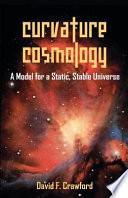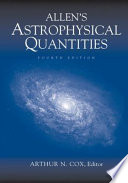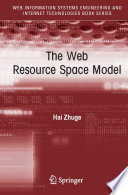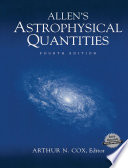Space Books – Your Gateway to the Universe
Welcome to the internet’s most comprehensive collection of books about space and astronomy. Whether you’re fascinated by distant galaxies, Mars exploration, or the physics of black holes, you’ll find carefully curated recommendations that match your interests and knowledge level.
Our mission is simple: connect curious readers with outstanding literature about the cosmos. From Carl Sagan’s timeless classics to cutting-edge accounts of recent space missions, we’ve assembled a library that spans the full spectrum of astronomical knowledge. Each title has been selected for its ability to inform, inspire, and ignite wonder about our place in the universe.
You’ll find books for complete beginners taking their first steps into astronomy, as well as advanced texts for readers ready to tackle orbital mechanics and cosmological theory. We organize everything by topic, difficulty level, and reader reviews, making it easy to discover your next great read.
The universe is vast and complex, but understanding it doesn’t have to be intimidating. With the right book, even the most abstract concepts—from quantum entanglement to gravitational waves—become accessible and exciting. Let’s help you find that perfect guide to the cosmos.
books of the day

Cosmology and Creation (1999) – Paul Brockelman
By Paul Brockelman Level: Intermediate | Ideal for: Students and scholars of theology, philosophy of science, religious studies, and cosmology who want to explore the dialogue between scientific and theological perspectives on…

Curvature Cosmology (2025) – David F. Crawford
By David F. Crawford Level: Advanced | Ideal for: Graduate students in physics and astronomy, professional cosmologists, theoretical physicists working on general relativity, researchers in gravitational physics, and advanced undergraduate students with…

Formation and Evolution of Exoplanets (2010) – Rory Barnes
By Rory Barnes ⭐☆☆☆☆ 1.0/5 (1 ratings) Level: Advanced | Ideal for: Graduate students in astronomy and planetary science, researchers in exoplanet studies, professional astronomers, and advanced undergraduates with strong physics backgrounds…

Allen’s Astrophysical Quantities (2025) – Clabon Walter Allen, Arthur N. Cox
By Clabon Walter Allen, Arthur N. Cox Level: Intermediate | Ideal for: Professional astronomers, graduate students in astrophysics, observatory researchers, planetarium directors, physics professors teaching astronomy courses, and advanced undergraduate students conducting…

The Web Resource Space Model (2007) – Hai Zhuge
By Hai Zhuge ⭐☆☆☆☆ 1.0/5 (2 ratings) Level: Advanced | Ideal for: Computer scientists, information system researchers, semantic web developers, knowledge management professionals, graduate students in computer science or information science, and…

Allen’s Astrophysical Quantities (2015) – Arthur N. Cox
By Arthur N. Cox Level: Advanced | Ideal for: Professional astronomers, astrophysicists, graduate students in astronomy and physics, researchers in planetary science and space engineering, observatory staff, and advanced undergraduate students conducting…
Why Reading About Space Matters More Than Ever
Books about space and astronomy have experienced a remarkable renaissance. With humanity’s renewed focus on Mars colonization, commercial spaceflight, and groundbreaking telescope observations, more people than ever are seeking to understand the universe. Our collection serves this growing curiosity with works that range from accessible introductions to scholarly deep-dives.
The appeal goes beyond mere facts and figures. Great astronomy literature connects us to something larger than ourselves. It challenges our assumptions, expands our perspective, and reveals the extraordinary story of how we came to understand the cosmos. From ancient astronomers tracking planetary movements to modern physicists detecting gravitational waves, this is humanity’s grandest intellectual adventure.
The Educational Power of Astronomy Literature
The best books about the universe do more than convey information—they transform how we think. They take abstract physics equations and reveal the elegant reality they describe. They show us images from distant nebulae and help us comprehend the forces that sculpted those cosmic clouds billions of years ago.
For students, these works provide invaluable context that textbooks often lack. A physics student might struggle with tensor calculus until reading a clear explanation of how Einstein visualized curved spacetime. An engineering student might find their purpose after learning about the ingenious solutions that brought astronauts safely home from Apollo 13.
Teachers and professors increasingly recommend quality astronomy books as required or supplementary reading. They recognize that passion and understanding often spring from narrative and context, not just formulas and definitions.
From Ancient Star Charts to Modern Cosmology
Humanity’s documentation of the heavens stretches back millennia. Ancient texts recorded celestial patterns that guided navigation and agriculture. Medieval scholars preserved and expanded Greek and Islamic astronomical knowledge. Then came the scientific revolution—Copernicus, Galileo, Kepler, Newton—each building our understanding through careful observation and brilliant reasoning.
Today’s astronomy literature stands on those giants’ shoulders. Modern authors can draw from:
- Unprecedented observations: Images from the James Webb Space Telescope showing galaxies as they appeared 13 billion years ago
- Active exploration: Real-time updates from rovers on Mars, probes visiting Jupiter’s moons, and spacecraft approaching the edge of our solar system
- Theoretical breakthroughs: New insights into dark matter, dark energy, and the quantum nature of reality
- Human experience: Living astronauts sharing what it’s really like to float in orbit, to see Earth from space, to venture beyond our world
Finding Your Perfect Book About the Cosmos
With thousands of titles available, choosing where to start can feel overwhelming. We’ve organized our recommendations to help you navigate by interest and expertise level.
Starting Your Astronomy Journey
If you’re new to the subject, look for books that:
- Explain concepts with everyday analogies rather than dense mathematics
- Include plenty of visual aids—photos, diagrams, and illustrations
- Cover broad topics to help you discover what interests you most
- Come recommended by educators and experienced astronomers
The ideal beginner’s book makes you feel smarter, not confused. It should answer basic questions (What is a light-year? Why do planets orbit? How do we know the universe is expanding?) while inspiring you to learn more. Authors like Neil deGrasse Tyson and Brian Cox excel at this accessible yet rigorous approach.
Advancing Your Knowledge
Once you’ve built a foundation, you’ll want books that dig deeper into specific topics. These intermediate and advanced works assume you understand the basics and are ready for:
- Mathematical descriptions of physical phenomena
- Detailed technical analysis of observational data
- Competing theories about unresolved questions in cosmology
- The nitty-gritty of actual research and space mission planning
Don’t worry if you don’t grasp everything on first reading. Even professional astronomers revisit complex texts multiple times. The goal is steady progress, not instant mastery.
Choosing by Subject Area
Observational Astronomy:
Practical guides to stargazing, telescope use, and identifying celestial objects. Perfect if you want hands-on experience with the night sky.
Planetary Science:
Deep dives into our solar system—how planets formed, what we’ve learned from robotic explorers, and where we might find life beyond Earth.
Stellar Evolution:
The life cycles of stars, from birth in nebular clouds to death as white dwarfs, neutron stars, or black holes.
Cosmology:
The biggest questions—how did the universe begin? What is it made of? How will it end? These books tackle existence at the grandest scale.
Books About Space Missions: Where Engineering Meets Adventure
Few topics combine technical achievement and human drama quite like accounts of actual space missions. These books transport you into mission control during critical moments, onto the surface of other worlds, and inside spacecraft hurtling through the void.
The Apollo program alone has spawned dozens of excellent books, from comprehensive histories to personal memoirs from the men who walked on the Moon. But don’t overlook equally compelling stories from other eras—the race to orbit in the 1950s and 60s, the Space Shuttle program’s triumphs and tragedies, and today’s robotic explorers sending back data from Mars, Jupiter, Saturn, and beyond.
Libros sobre misiones espaciales offer unique value: they show how theoretical knowledge gets applied to solve real problems. How do you land a robot the size of a car on another planet? How do you keep humans alive for months in zero gravity? How do you communicate with a probe billions of miles away? These books answer with fascinating detail.
Contemporary mission accounts are especially compelling because the science is cutting-edge. Books about the Mars rovers, the New Horizons flyby of Pluto, or the James Webb Space Telescope’s deployment help you understand not just what we’ve discovered, but how we discovered it and why it matters.
The Most Influential Books in Astronomy History
Certain works stand as landmarks in both science and literature. Carl Sagan’s “Cosmos” demonstrated that rigorous astronomy could also be poetic and profound, reaching millions of readers who might never have picked up a science book otherwise. Stephen Hawking’s “A Brief History of Time” showed that even the most abstract theoretical physics could captivate a general audience.
These classics endure because they transcend their moment. Though written decades ago, they still offer valuable perspectives on fundamental questions. They remind us that science isn’t just a collection of facts but an ongoing human endeavor to understand reality.
Today’s authors continue this tradition. Works like “Astrophysics for People in a Hurry” and “The Order of Time” make cutting-edge science accessible without dumbing it down. They respect readers’ intelligence while recognizing that not everyone has a PhD in physics.
Digital Revolution: New Ways to Experience Astronomy Books
E-readers and audiobooks have transformed how we consume science literature. You can now carry an entire library of astronomy texts on a single device, perfect for reference or continued learning. Many digital editions include hyperlinks to supplementary materials—video clips from space missions, interactive diagrams, updated data as new discoveries emerge.
Audiobooks deserve special mention. Listening to a skilled narrator explain the mysteries of quantum mechanics during your commute or workout adds learning time that might otherwise be unavailable. Many astronomy enthusiasts report that hearing complex ideas spoken aloud helps them understand better than reading alone.
That said, some books simply work better in print. Coffee table volumes showcasing stunning space photography, detailed star atlases, and heavily illustrated guides lose something on a small screen. Consider building a hybrid library—digital copies for reference and portability, physical editions for the books you treasure most.
What’s Next: The Future of Astronomy Literature
We’re living through a golden age of space exploration and astronomical discovery. New books arrive constantly, each reflecting the latest findings. Current trends include:
Private Spaceflight:
With companies like SpaceX, Blue Origin, and others making space more accessible, expect memoirs from the first generation of space tourists and detailed accounts of commercial space development.
Exoplanet Research:
The discovery of thousands of planets orbiting other stars has spawned a new genre of books exploring alien worlds and the search for life beyond Earth.
Gravitational Wave Astronomy:
Books explaining this revolutionary new way of observing the universe, which recently detected colliding black holes and neutron stars.
Mars and Moon Colonization:
Serious technical and speculative works about humanity’s next giant leap—establishing permanent settlements beyond Earth.
As telescopes grow more powerful and space missions more ambitious, astronomy literature will continue evolving. Today’s cutting-edge discoveries become tomorrow’s historical context. That’s why we constantly update our recommendations, ensuring you have access to the most current and comprehensive works available.
The Science Behind Great Science Writing
Writing well about astronomy requires a delicate balance. Go too technical, and you lose general readers. Oversimplify, and you sacrifice accuracy. The best authors find that sweet spot—maintaining scientific integrity while keeping the prose engaging and understandable.
They use multiple strategies:
- Smart analogies: Comparing cosmic phenomena to familiar experiences helps readers build mental models
- Progressive complexity: Starting simple and gradually introducing more sophisticated concepts
- Visual thinking: Helping readers visualize abstract ideas through vivid descriptions
- Historical narrative: Showing how understanding evolved over time makes current knowledge more meaningful
- Personal connection: Relating cosmic concepts to human experience and philosophical questions
This skillful communication is why some astronomy books become bestsellers while others languish unread despite covering important topics. It’s not just about what information you present, but how you present it.
Building Your Personal Astronomy Library
A well-curated collection serves multiple purposes—education, inspiration, reference, and pure enjoyment. Consider including:
Foundation Texts: Broad surveys that cover multiple topics and serve as go-to references. These are books you’ll return to repeatedly as your knowledge grows.
Specialized Deep Dives: Once you identify particular interests—say, black holes or planetary geology—seek out authoritative works that explore those subjects thoroughly.
Current Affairs: Recent publications covering the latest missions, discoveries, and theories keep you up to date in this rapidly advancing field.
Human Stories: Astronaut memoirs and scientist biographies remind you that space exploration is ultimately a human endeavor, full of courage, creativity, and perseverance.
Visual Splendor: Photography collections showcasing the universe’s beauty—nebulae, galaxies, planetary surfaces—serve as inspiring reminders of why we explore.
Historical Perspectives: Classic works showing how we got here intellectually, from ancient astronomy through the scientific revolution to modern cosmology.
Your library will grow organically with your interests. Start with accessible introductions, then branch out as specific topics capture your imagination.
Why Read Books About Space?
Personal Growth
- Gain cosmic perspective on everyday concerns
- Develop scientific literacy and critical thinking
- Understand the physical laws governing reality
- Connect with humanity’s greatest intellectual achievements
- Find inspiration in the universe’s beauty and mystery
Knowledge & Skills
- Learn about cutting-edge discoveries in real-time
- Understand the technology enabling space exploration
- Grasp fundamental physics principles
- Follow current missions and scientific debates
- Build vocabulary for discussing complex topics
Cultural & Philosophical Impact
- Explore profound questions about existence
- Appreciate science’s role in human progress
- Understand how astronomy shaped civilization
- Consider humanity’s future as a spacefaring species
- Engage with ideas that challenge assumptions
Our Collection Spans Multiple Genres
Popular Science Writing
- Accessible explanations of complex topics
- Visual guides to the solar system and beyond
- Beginner-friendly astronomy fundamentals
- Books about the search for alien life
- Historical accounts of astronomical breakthroughs
Space Exploration Chronicles
- Detailed histories of NASA and international programs
- Mission accounts from Apollo to Mars rovers
- Life aboard the International Space Station
- Astronaut biographies and memoirs
- Future of commercial spaceflight
Advanced Topics
- Technical manuals for serious observers
- Theoretical astrophysics and cosmology
- Research-level texts for students
- Stunning photography from space telescopes
- Philosophy of science and cosmic questions
How This Site Works
Discover
- Browse curated categories by topic
- Filter by difficulty level and reader ratings
- Explore themed reading lists
- Read detailed summaries and reviews
- Get personalized recommendations
Learn
- Compare similar books side-by-side
- Check sample chapters and excerpts
- See what other readers recommend
- Understand technical specifications
- Find both classics and new releases
Purchase
- Direct links to Amazon for convenience
- Available in multiple formats
- Competitive pricing
- Reliable delivery
- As Amazon Associates, we earn from qualifying purchases
FREQUENTLY ASKED QUESTIONS
The best books about space balance accuracy with accessibility. They respect scientific truth while explaining concepts clearly. Look for works that include illustrations, avoid unnecessary jargon, and build understanding progressively. Author credentials matter—professors, researchers, and experienced science writers generally produce more reliable content than generalists.
Start with broad introductions that survey multiple topics. Titles like “Cosmos” by Carl Sagan or “Astrophysics for People in a Hurry” by Neil deGrasse Tyson are perfect entry points. They require no prior knowledge and help you discover which aspects of astronomy interest you most. From there, you can explore more specialized works.
Absolutely. You’ll find detailed accounts of historic missions like Apollo 11, as well as contemporary explorations like the Mars rovers, the New Horizons mission to Pluto, and the deployment of the James Webb Space Telescope. These books combine technical detail with human drama, showing both what we discovered and how we overcame challenges.
It varies widely. Some assume no mathematical background beyond basic arithmetic. Others include equations and expect familiarity with calculus and physics. We clearly label difficulty levels, and our detailed descriptions specify when advanced knowledge is required. Most readers find plenty of engaging material regardless of their technical background.
Many astronomy books work wonderfully for young readers. We have specific recommendations for different age groups, from picture books introducing basic concepts to more detailed works for curious teenagers. Reading about space often sparks lifelong interests in science and exploration.
Astronomy traditionally focuses on observing and cataloging celestial objects, while astrophysics applies physics to understand their behavior and properties. In practice, modern books often blend both approaches. Observational guides lean more toward astronomy, while books explaining stellar evolution or cosmological theory emphasize astrophysics.
Yes! First-person accounts from space travelers offer unique perspectives. These memoirs describe training, launch experiences, living in orbit, and seeing Earth from space. They’re inspiring for general readers and valuable for anyone considering a career in aerospace. Notable examples include works by Chris Hadfield, Scott Kelly, and Mike Massimino.
We update weekly with new releases and rediscovered classics. Astronomy advances rapidly—new telescopes, missions, and discoveries constantly emerge. Our recommendations reflect the latest findings while maintaining timeless works that remain relevant despite their age.
Definitely. Students from high school through graduate programs will find valuable resources here. Many titles serve as excellent supplements to formal coursework, providing context and depth beyond typical textbook treatment. We’ve included materials suitable for various academic levels and specializations.
We provide direct links to Amazon for convenient purchasing. You’ll find options for hardcover, paperback, e-book, and audiobook formats when available. As participants in the Amazon Associates program, we earn small commissions on purchases—this supports our work curating and reviewing astronomy literature at no extra cost to you.